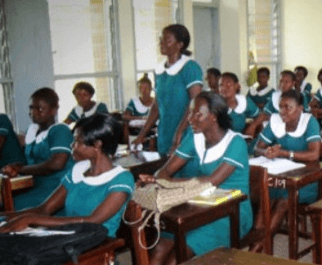

In a heartfelt post on the popular Facebook group “Tell It All,” an anonymous user has shared a deep frustration over the financial burden of pursuing higher education. The individual disclosed that they spent a huge sum of GHC300,000 to obtain a Microsoft Certified Systems Engineer (MCSE) certification, only to secure a job that pays a modest 2,000 GHS monthly. The post, which has quickly gained traction, underscores the challenges faced by many graduates in Ghana who struggle to see a return on their educational investments.
The anonymous poster calculated that it would take about 13 years to recover the money spent on their education, highlighting the significant financial strain many graduates endure. “Graduates desire better,” the post concluded, accompanied by emoticons expressing sadness and disappointment.
The post has ignited a wave of reactions on social media, with many users expressing empathy and sharing similar experiences. Comments ranged from words of encouragement to calls for systemic change in the job market. Some users emphasised the need for better career guidance and support for graduates, while others criticised the high cost of education and the mismatch between academic qualifications and job opportunities.
Ambless Kwame Frimpong Junior commented, “Come on. Studying alone is not about salary. It’s about building yourself. As time goes on your MCSE will make sense and it will reflect on your salary. Just a matter of time.”
Michael K Owusu Angeles commented, “Education by itself is not to make you rich through a job but to give you knowledge. You only can become rich by leveraging on the new knowledge received.”
Isaac Saga Donkoh also commented, “It's sad but 3 billion old cedis? Maybe from class 1 to postgraduate.”
Champion Kojo stated, “Education is very important ooo but currently in our mother land Ghana ???????? de3 is becoming something else hmm.”

The issue of low salaries is further compounded by the country’s minimum wage rate.
As of January 2024, the national daily minimum wage in Ghana has been increased from 14.88 GHS to 18.15 GHS. This translates to a monthly minimum wage of approximately 490.05 GHS, assuming a 27-day work month. While this increase is a step in the right direction, it still falls short of meeting the financial needs of many workers, especially those who have invested significantly in their education.
The frustration expressed by the anonymous graduate is not an isolated case. Many young professionals in Ghana face the dual challenge of low wages and a rising cost of living. Despite holding advanced degrees and certifications, they often find themselves in jobs that do not pay enough to cover basic expenses, let alone repay educational loans. This situation is exacerbated by inflation and the increasing cost of essential goods and services, making it difficult for graduates to achieve financial stability and independence.
Read Full Story















Facebook
Twitter
Pinterest
Instagram
Google+
YouTube
LinkedIn
RSS